
Think Again: Are Education Programs for High Achievers Inherently Inequitable?
This brief challenges the notion that marginalized students of high ability are harmed by advanced education, with implications for better screening measures and expansion of programs.
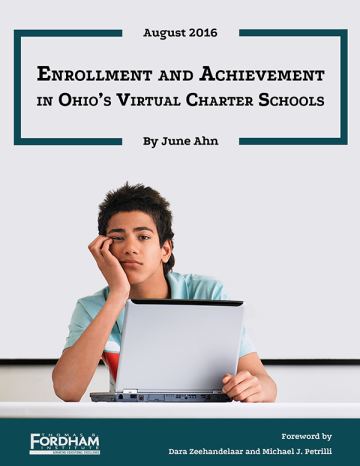
Enrollment and Achievement in Ohio's Virtual Charter Schools
This Fordham study, conducted by learning technology researcher June Ahn from NYU, dives into one of the most promising—and contentious—issues in education today: virtual schools. What type of students choose them? Which online courses do students take? Do virtual schools lead to improved outcomes for kids?
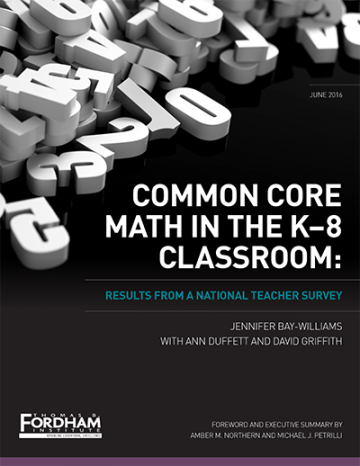
Common Core Math in the K-8 Classroom: Results from a National Teacher Survey
In Common Core Math in the K-8 Classroom: Results from a National Teacher Survey, Jennifer Bay Williams, Ann Duffett, and David Griffith take a close look at how educators are implementing the Common Core math standards in classrooms across the nation.
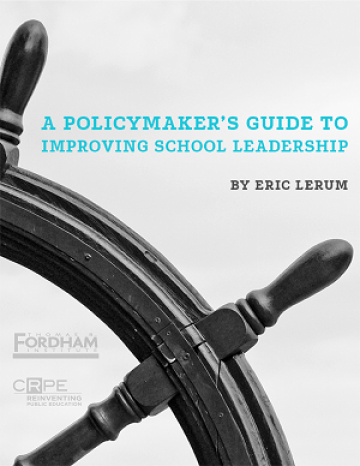
A Policymaker's Guide to Improving School Leadership
Whether the goal is to enhance instruction, create a culture of excellence, or broaden education options for parents, it’s nearly impossible to improve schools without strong leaders. This is hardly news; much evidence has indicated the importance of effective principals for decades.
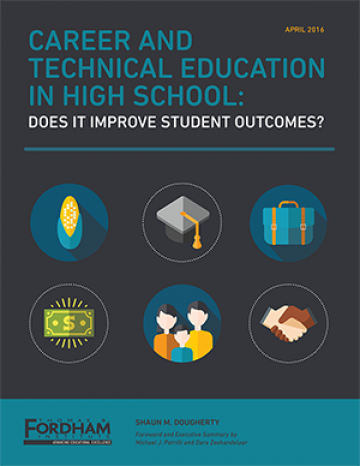
Career and Technical Education in High School: Does It Improve Student Outcomes?
Fordham’s latest study, by the University of Connecticut's Shaun M. Dougherty, uses data from Arkansas to explore whether students benefit from CTE coursework—and, more specifically, from focused sequences of CTE courses aligned to certain industries.
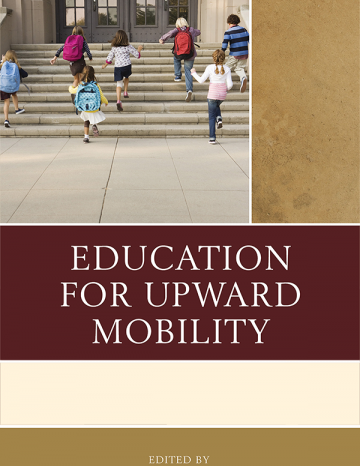
Education for Upward Mobility
In Education for Upward Mobility, editor Michael J. Petrilli and more than a dozen leading scholars and policy analysts seek answers to a fundamental question: How can we help children born into poverty transcend their disadvantages and enter the middle class as adults? And in particular, what role can our schools play?
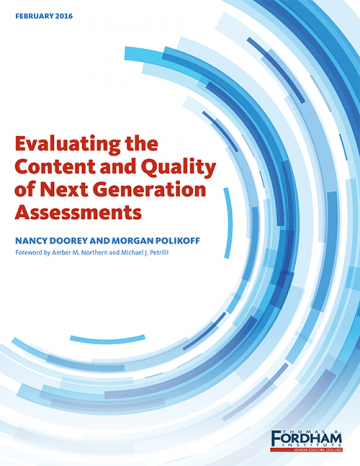
Evaluating the Content and Quality of Next Generation Assessments
Evaluating the Content and Quality of Next Generation Assessments examines previously unreleased items from three multi-state tests (ACT Aspire, PARCC, and Smarter Balanced) and one best-in-class state assessment, Massachusetts’ state exam (MCAS). The product of two years of work by the Thomas B.
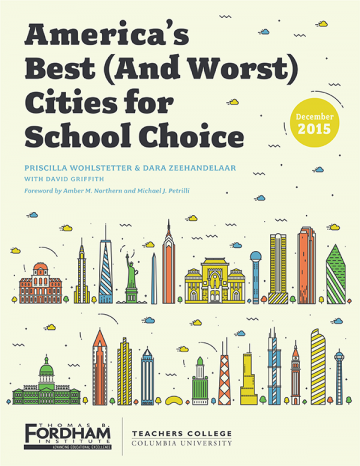
America's Best (and Worst) Cities for School Choice
More than twelve million American students exercise some form of school choice by going to a charter, magnet, or private school——instead of attending a traditional public school.
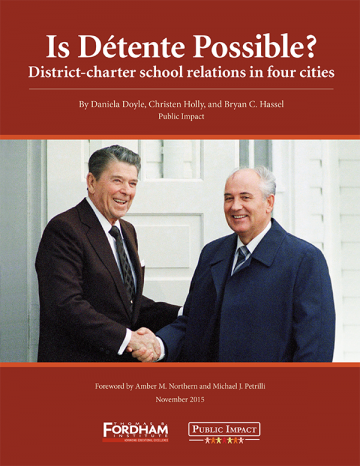
Is Detente Possible? District-charter school relations in four cities
Whether you think the end game of the current “mixed economy” of district and charter schools should be an all-charter system (as in New Orleans) or a dual model (as in Washington D.C.), for the foreseeable future most cities are likely to continue with a blend of these two sectors. So we wanted to know: Can they peacefully co-exist? Can they do better than that?
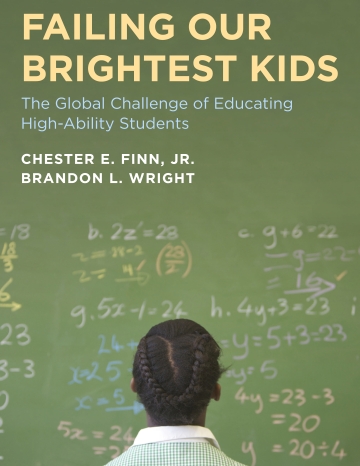
Failing Our Brightest Kids: The Global Challenge of Educating High-Ability Students
In Failing Our Brightest Kids, Chester E. Finn, Jr. and Brandon L. Wright argue that for decades, the United States has focused too little on preparing students to achieve at high levels.
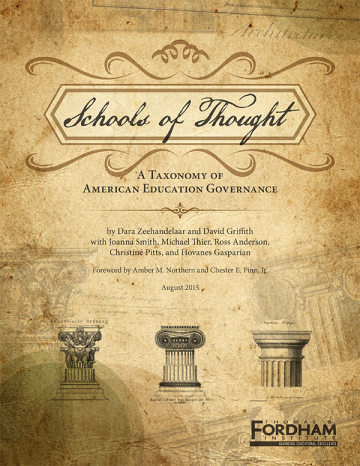
Schools of Thought: A Taxonomy of American Education Governance
Questions of education governance are often considered moot by policymakers, who typically assume that the governance challenges plaguing their local schools are both universal and inevitable. Given the ubiquity of everything from local school boards to state superintendents, this seems to be a logical assumption.
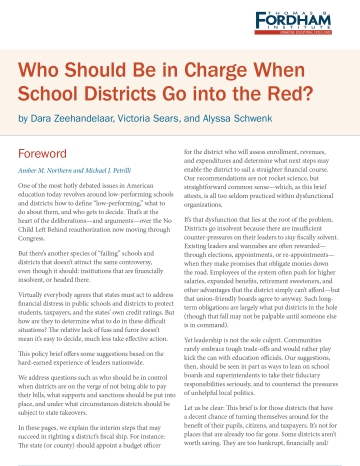
Who Should Be in Charge When School Districts Go into the Red?
School districts across the land are contending with rising education costs and constrained revenues. Yet state policies for assisting school districts in financial trouble are uneven and complex. Interventions are often haphazard, occur arbitrarily, and routinely place politics over sound economics.
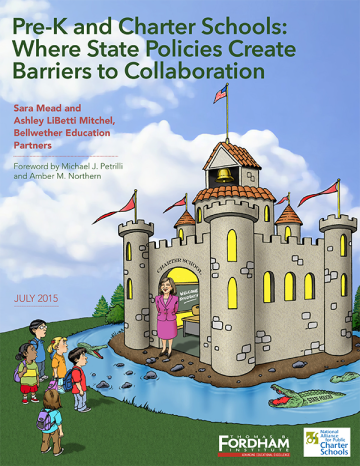
Pre-K and Charter Schools: Where State Policies Create Barriers to Collaboration
In Pre-K and Charter Schools: Where State Policies Create Barriers to Collaboration, authors Sara Mead and Ashley LiBetti Mitchel examine thirty-six jurisdictions that have both charter schools and state-funded pre-K programs to determine where charters can provide state-funded pre-K.